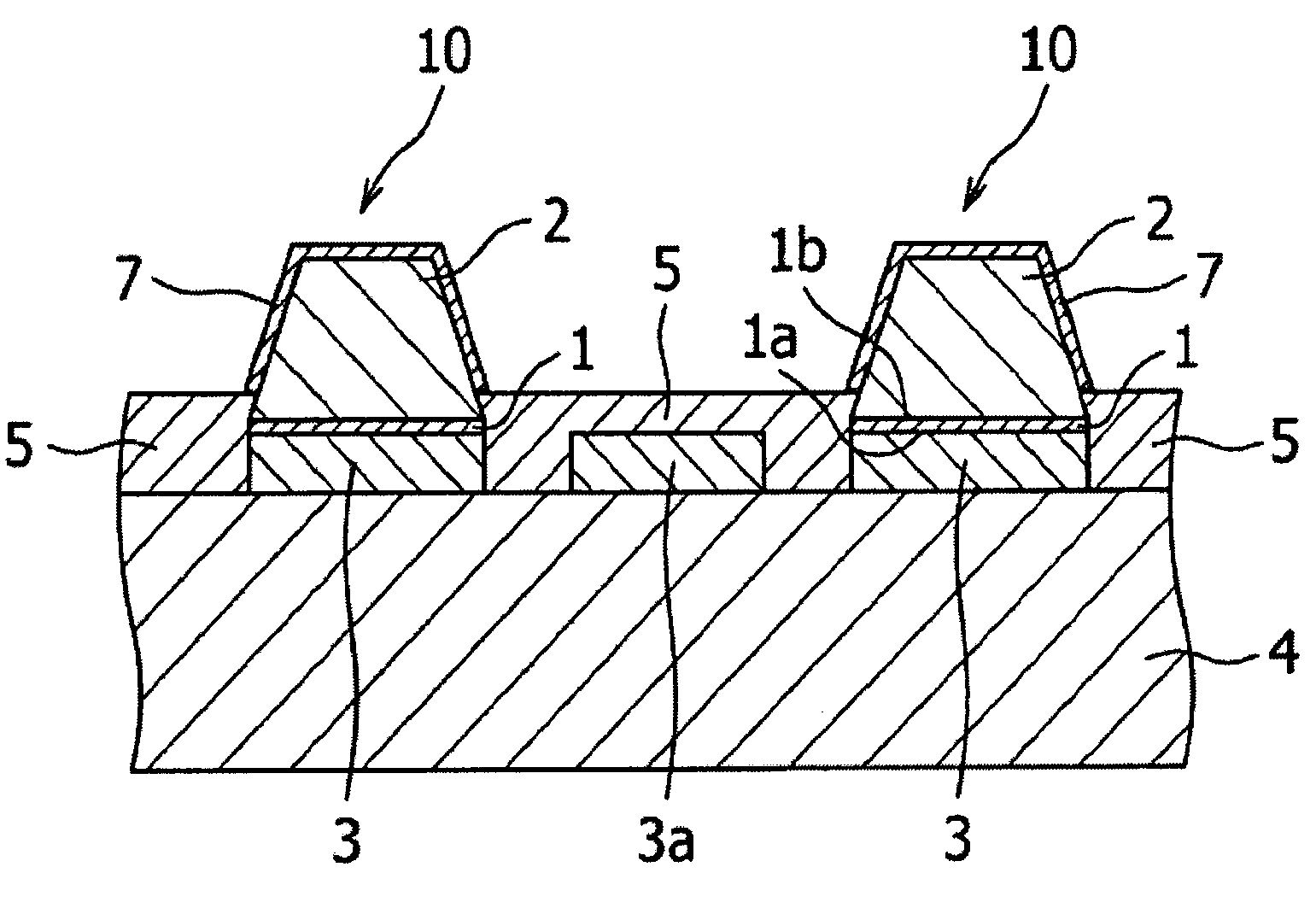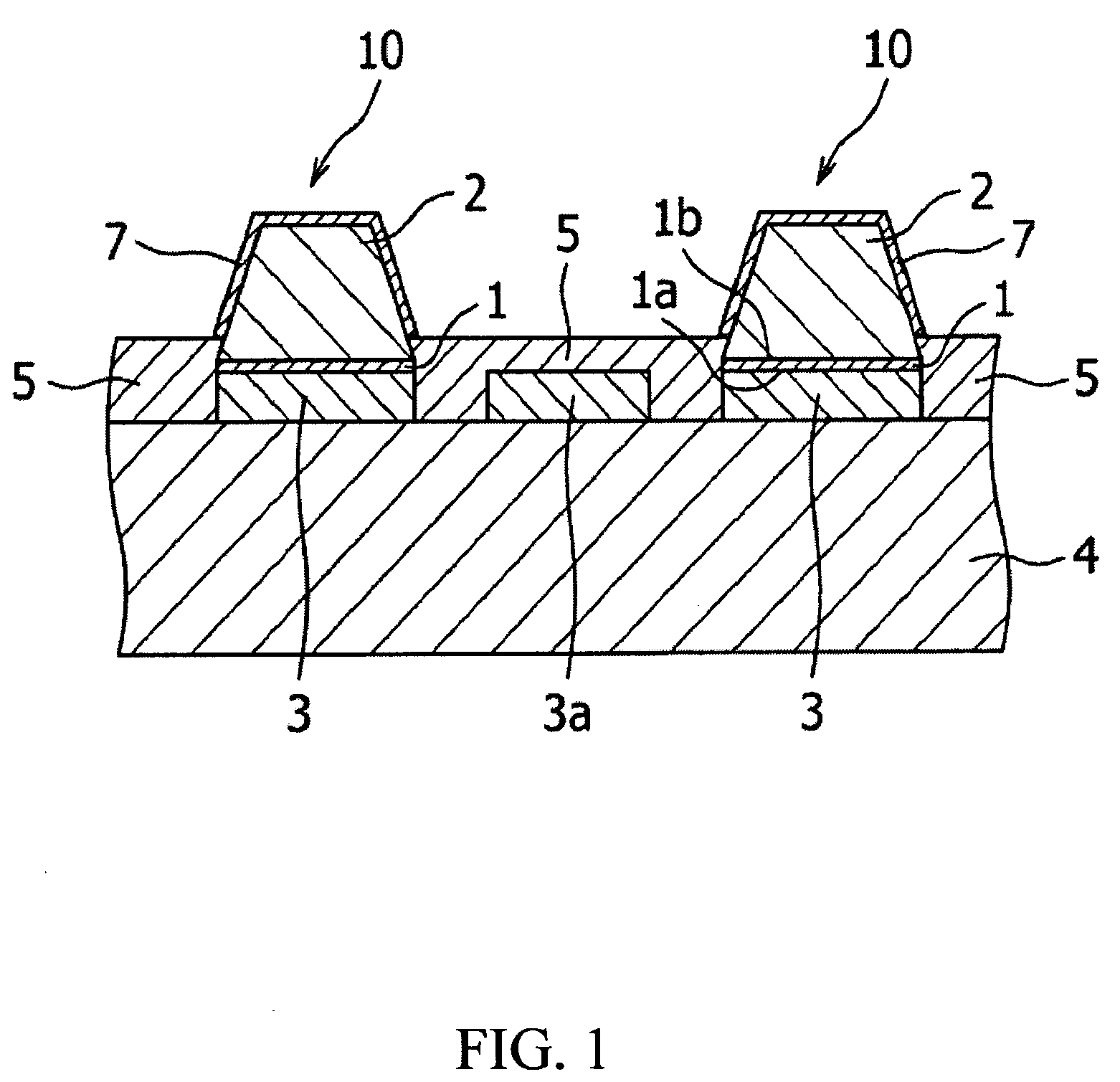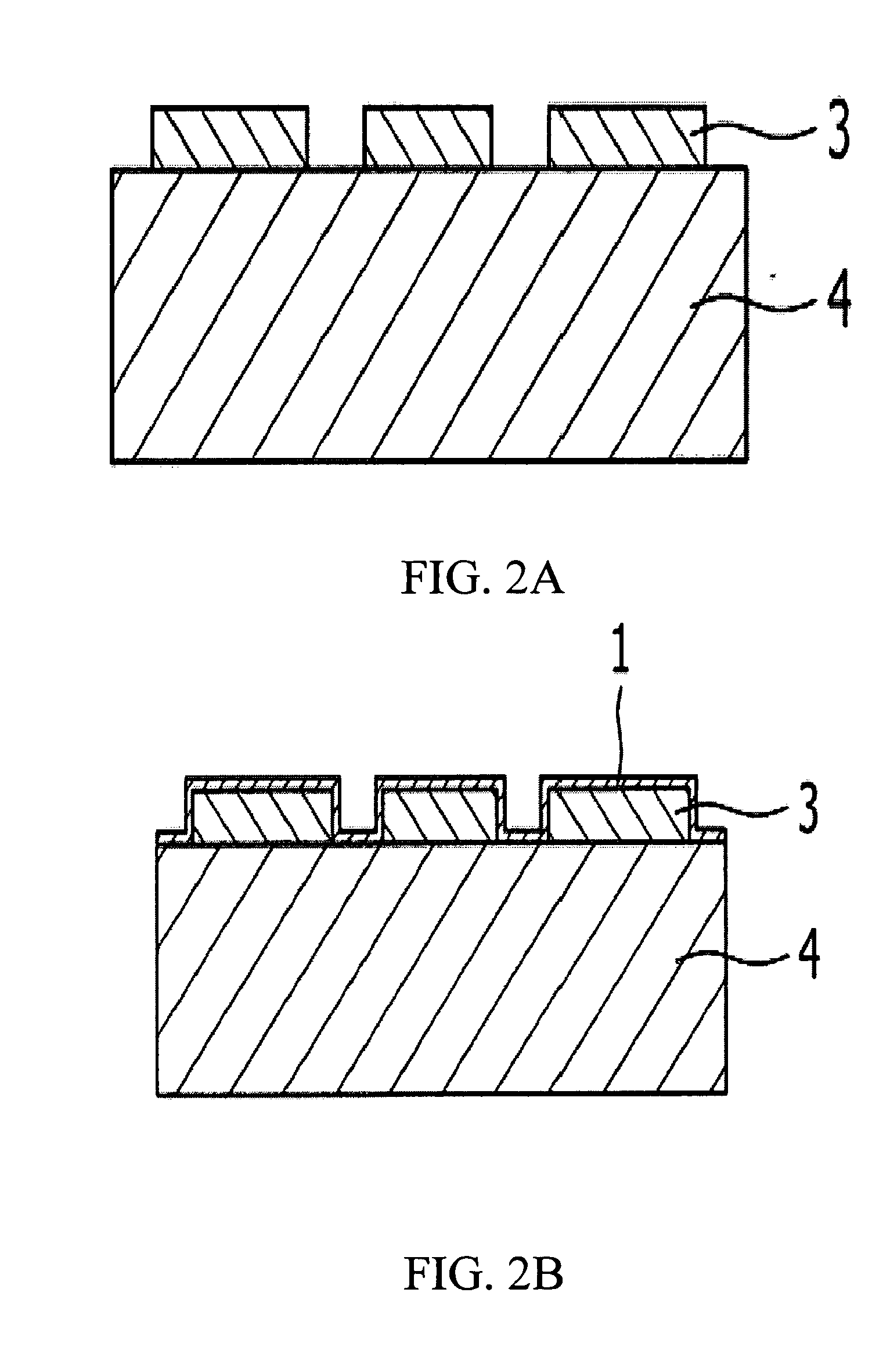Interconnection element for electric circuits
- Summary
- Abstract
- Description
- Claims
- Application Information
AI Technical Summary
Benefits of technology
Problems solved by technology
Method used
Image
Examples
first embodiment
[0050]The bump 2 is formed in the same manner as in the first embodiment and the tin metal layer 1 is etched, so as to form the interconnection element 10 in which the wiring layer 3a is held as a supporting member (FIG. 5B). Thermosetting resin 9, which turns into an insulation layer, may then be disposed on a portion in which no bump structure 10 is formed (FIG. 5C). The assembly may be positioned on a substrate 44 so that the position of the bump is aligned with the position of the metal portion and with the interconnection element 10 facing the substrate 44, the entire assembly is pressurized and heated, thereby integrating the assembly and the substrate 44 being integrated (FIG. 5D). An etching resist 11 for forming the pad 3 into a predetermined pattern from the wiring layer 3a is formed on the wiring layer 3a. Using the etching resist 11, etching may be carried out, so that the pad 3 is patterned from the wiring layer 3a. A solder resist 12 is formed on a face on which the pa...
fourth embodiment
[0051]FIGS. 6A-6F, the interconnection element, show the method steps as to how the interconnection element is created and connected to an external circuit chip or the like. The interconnection element includes bump structure 10 (FIG. 6B), which includes metal bumps 2, a low melting point metal layer, such as tin layer 1, and a wiring layer 3a that is capable of providing interconnection to another electronic element or the like. The wiring layer 3a may be held by a charged encapsulant, such as a resin portion 14, which acts as an insulating portion or layer (FIG. 6D). According to this embodiment, the assembly in which the wiring layer 3a, the tin metal layer 1 and the copper foil 2a are stacked is prepared, and the etching resist 6 is disposed on the wiring layer 3a (FIG. 6A). Following the pattern of the etching resist 6, the copper foil 2a may be etched so as to form the bump 2. With the bump 2 used as a mask, the tin metal layer 1 is etched so as to obtain the interconnection e...
PUM
| Property | Measurement | Unit |
|---|---|---|
| Dielectric polarization enthalpy | aaaaa | aaaaa |
| Concentration | aaaaa | aaaaa |
| Electrical conductor | aaaaa | aaaaa |
Abstract
Description
Claims
Application Information
 Login to View More
Login to View More - R&D
- Intellectual Property
- Life Sciences
- Materials
- Tech Scout
- Unparalleled Data Quality
- Higher Quality Content
- 60% Fewer Hallucinations
Browse by: Latest US Patents, China's latest patents, Technical Efficacy Thesaurus, Application Domain, Technology Topic, Popular Technical Reports.
© 2025 PatSnap. All rights reserved.Legal|Privacy policy|Modern Slavery Act Transparency Statement|Sitemap|About US| Contact US: help@patsnap.com



